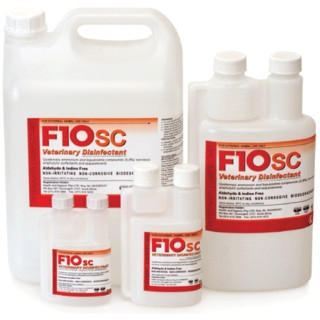Understanding F10: Applications, Benefits, and Considerations

F10 is a term that can refer to various products and concepts across different industries, including healthcare, veterinary use, and automotive applications. In Australia, F10 is commonly associated with specialized disinfectants, cleaning agents, and certain medical or veterinary formulations. Its effectiveness in various sectors makes it a crucial topic for those involved in hygiene, animal care, and specialized cleaning practices.
This article explores the key applications, benefits, and safety considerations of F10, with a focus on its role in Australia.
What is F10?
F10 is widely recognized for its use in disinfection and sanitation processes. It is commonly used in veterinary clinics, animal shelters, and laboratories, where strict hygiene protocols are required. Additionally, F10 can also be linked to specific formulations in healthcare and industrial cleaning, ensuring the elimination of harmful microorganisms.
Applications of F10
1. Veterinary and Animal Care
In the veterinary field, F10 is frequently used for:
-
Disinfecting animal enclosures to prevent the spread of bacteria and viruses
-
Sterilizing surgical instruments to maintain hygiene in medical procedures
-
Treating infections in animals where appropriate formulations exist
-
Controlling outbreaks of infectious diseases in pet care and farming environments
2. Healthcare and Laboratory Use
Medical and laboratory environments require high levels of hygiene. F10 is utilized in these settings for:
-
Surface disinfection in hospitals and clinics
-
Sterilizing medical equipment before and after procedures
-
Preventing cross-contamination in laboratory research
3. Industrial and Commercial Cleaning
F10 is also used in commercial settings, particularly in food production facilities, where hygiene is critical. It plays a role in:
-
Cleaning food processing equipment to ensure safety standards
-
Disinfecting public spaces such as gyms and schools
-
Eliminating harmful pathogens in high-risk environments
4. Household and Personal Use
Certain F10 formulations may be used in homes for:
-
Disinfecting surfaces in kitchens and bathrooms
-
Sanitizing pet areas to reduce bacterial spread
-
Preventing mold and fungal growth in damp environments
Benefits of F10
1. Broad-Spectrum Disinfection
One of the primary advantages of F10 is its effectiveness against a wide range of microorganisms, including bacteria, viruses, fungi, and spores. This makes it a preferred choice for environments requiring high hygiene standards.
2. Non-Corrosive and Safe for Various Surfaces
Unlike some disinfectants that can damage surfaces, F10 is often formulated to be non-corrosive, making it safe for use on metals, plastics, and fabrics.
3. Effective in Veterinary and Medical Settings
The ability of F10 to eliminate pathogens without causing harm to animals or humans makes it a valuable tool in healthcare and veterinary applications.
4. Long-Lasting Protection
Some F10 products provide residual action, meaning they continue to work after application. This prolonged effectiveness helps maintain hygiene standards over time.
5. Versatile Applications
From hospitals to homes, F10 can be used in multiple environments, making it a flexible and reliable choice for disinfection and cleaning.
Safety Considerations
1. Proper Dilution and Usage
Certain F10 formulations require dilution before use. It is essential to follow manufacturer guidelines to ensure effectiveness and safety.
2. Storage and Handling
-
F10 should be stored in a cool, dry place, away from direct sunlight.
-
Containers should be sealed properly to prevent contamination or evaporation.
3. Environmental Impact
While F10 is generally considered safe, improper disposal can lead to environmental concerns. Users should follow proper waste disposal methods to minimize impact.
4. Human and Animal Safety
-
Avoid ingestion of F10 solutions, as they may be harmful if consumed.
-
Use protective gloves when handling concentrated formulations to prevent skin irritation.
-
Ensure proper ventilation when using in enclosed spaces.
Regulatory Aspects in Australia
In Australia, the use of F10 in veterinary, healthcare, and industrial settings is regulated to ensure public and environmental safety. Agencies such as the Therapeutic Goods Administration (TGA) and the Australian Pesticides and Veterinary Medicines Authority (APVMA) oversee the approval and monitoring of such products. Users must adhere to:
-
Label instructions and recommended usage guidelines
-
Workplace health and safety regulations
-
Environmental safety standards
Future Trends and Research
With the growing demand for effective hygiene solutions, ongoing research is being conducted to enhance F10 formulations. Some future developments include:
-
Improved antimicrobial resistance management to combat evolving pathogens
-
Eco-friendly formulations to reduce environmental impact
-
Advanced application methods for increased efficiency in various industries
Conclusion
F10 plays a significant role in maintaining hygiene and preventing infections across various sectors in Australia. Whether used in veterinary care, healthcare, industrial settings, or households, it remains a valuable tool for effective disinfection. However, proper handling and adherence to regulatory guidelines are essential to maximize its benefits while ensuring safety. As research continues, F10 is expected to evolve, contributing further to hygiene and disease control efforts.
- Questions and Answers
- Opinion
- Motivational and Inspiring Story
- Technology
- Live and Let live
- Focus
- Geopolitics
- Military-Arms/Equipment
- Security
- Economy
- Beasts of Nations
- Machine Tools-The “Mother Industry”
- Art
- Causes
- Crafts
- Dance
- Drinks
- Film/Movie
- Fitness
- Food
- Games
- Gardening
- Health
- Home
- Literature
- Music
- Networking
- Other
- Party
- Religion
- Shopping
- Sports
- Theater
- Health and Wellness
- News
- Culture

